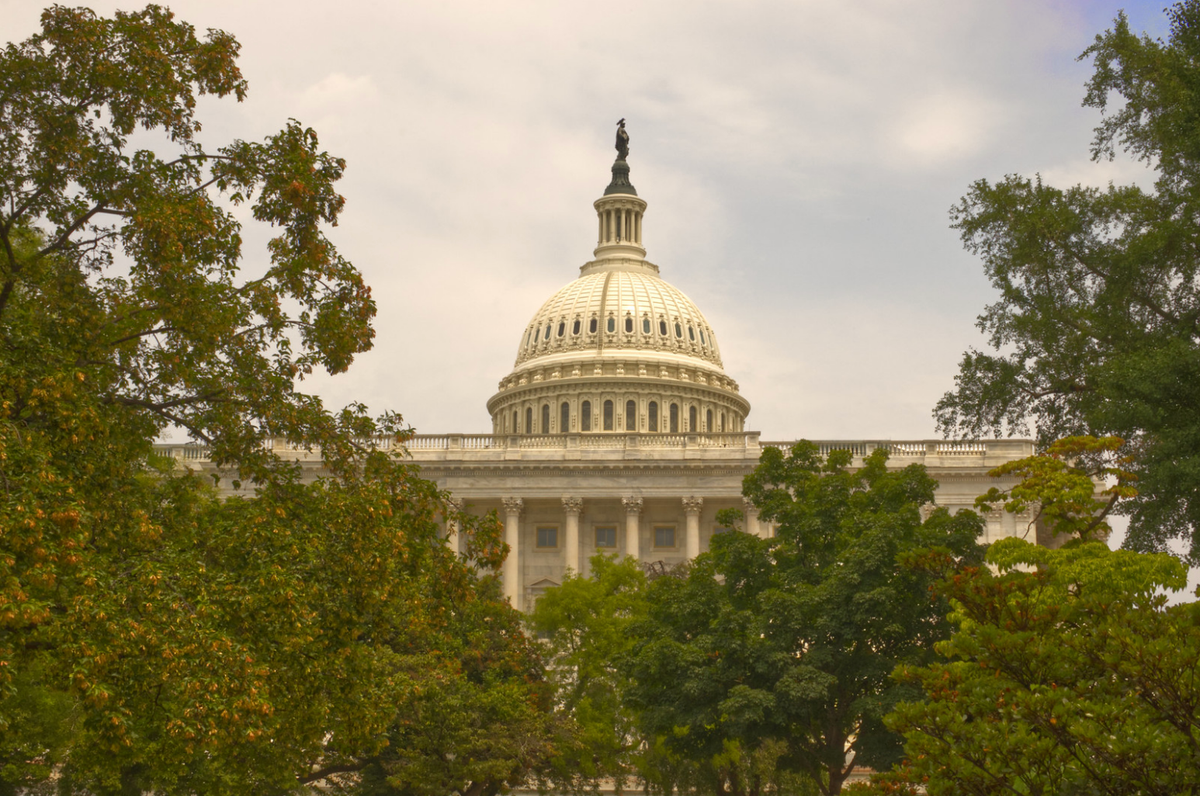US House Of Representatives Passes Reporter's Shield Law—Again
The bill now moves to the U.S. Senate, where it has the support of Senators Ron Wyden, Mike Lee, and Dick Durbin, chair of the Senate Judiciary Committee.

The following article was made possible by paid subscribers of The Dissenter. Become a subscriber and support independent journalism in defense of press freedom.
A federal shield for journalists with support from both Democrats and Republicans was unanimously passed by a voice vote in the United States House of Representatives. It was previously passed by the House in 2022.
The Protect Reporters from Exploitative State Spying Act, or the PRESS Act, was re-introduced in 2023. It would “prohibit the federal government from compelling journalists and providers of telecommunications services to provide information identifying a source or any other record obtained or created by journalists in the course of their work,” according to a House Judiciary Committee report from December.
Several U.S. news media organizations, like the New York Times and the Washington Post, support the proposed shield law. A coalition of civil liberties, human rights, and press freedom organizations led by the Freedom of the Press Foundation (FPF) also support the shield law.
FPF advocacy director Seth Stern celebrated. “With the House’s bipartisan vote approving the PRESS Act, Congress comes one step closer to providing powerful protection against surveillance of journalists. Now it’s up to the Senate to finish the job by passing this historic legislation and sending it to the president’s desk to sign.”
“Even as the House votes to pass the PRESS Act, reporters are being put in the agonizing position of being threatened with crippling fines or even jail time for refusing to name their sources,” added Caitlin Vogus, FPF deputy advocacy director.
In June 2023, the PRESS Act was introduced by Republican Representative Kevin Kiley and Democratic Representative Jamie Raskin in the House.
Raskin hailed the passage of the PRESS Act. “Today is a triumphant day for press freedom. With the PRESS Act closer than ever to becoming law, a federal press shield law is within reach that affords journalists protection from government overreach and abuse of the subpoena power."
A similar version of the legislation was introduced in the Senate in June 2023 by Democratic Senators Ron Wyden and Dick Durbin and Republican Senator Mike Lee.
“Spying on reporters to learn the identity of their sources is a finger in the eye of the First Amendment,” Wyden declared, when the shield law was re-introduced. “Unnecessary surveillance of journalists makes it harder to bring waste, fraud, and abuse to light by scaring off sources and reporters who are essential to a well-functioning.”
Lee said, “Law enforcement agencies have resorted to clandestine tactics, subpoenaing emails and phone records in an effort to unmask confidential sources. Not only is this legislation imperative to shield journalists from unnecessary government surveillance, but it is also necessary to protect the public's right to access information, hold their elected officials accountable, and actively participate in representative government.”
Durbin is the chair of the Senate Judiciary Committee. Previously, in response to a 2022 column by Stern that was published by the Chicago Sun-Times, Durbin pledged to “fast-track” the PRESS Act for passage in the Senate.
Republican Senator Tom Cotton, a hawkish minority member of the Senate Judiciary Committee, blocked the PRESS Act in 2022 and venomously attacked freedom of the press.
“The press, unfortunately, has a long and sordid history of publishing sensitive information from inside the government that damages our national security,” Cotton said. During the Vietnam War, the New York Times published the Pentagon Papers in an effort to demoralize the American people and turn them against the war effort.
“During the wars in Iraq and Afghanistan, the press routinely revealed details about America’s efforts to hunt down terrorists—details that helped our enemies cover their tracks and evade justice,” Cotton also stated.
While opposing the publication of the Pentagon Papers, which were revealed by whistleblower Daniel Ellsberg, Cotton maintained that the PRESS Act would “grant journalists special legal privileges to disclose sensitive information that no other citizen enjoys. It would treat the press as a special caste of ‘crusaders for truth’ who are somehow set apart from their fellow citizens.”
Cotton may attempt to stall the PRESS Act again, although one maneuver for circumventing this obstruction would be to include the bill in the next omnibus spending package that must pass the Senate.
As noted by the Freedom of the Press Foundation, “Forty-nine states and the District of Columbia have shield laws or equivalents recognized by courts. But without a federal shield law, journalists still risk being jailed or punished for refusing to reveal sources or their newsgathering material in federal courts, congressional inquiries,and administrative proceedings."
The shield law is stronger than previous proposed versions of the law that Congress has considered. Despite some exceptions in the bill, it more broadly defines "covered journalists."
Attorney General Merrick Garland and the Justice Department established a policy after President Donald Trump’s Justice Department abused its subpoena power to target journalists. The policy was intended to protect news media from “certain law enforcement tools and actions that might unreasonably impair newsgathering.”
However, if the Senate does not pass the PRESS Act, that policy will not be codified into law. Any future presidential administration will be able to repeal the policy and commit further unchecked and unaccountable abuses of power.




Comments ()